Posted on: 29 October 2021
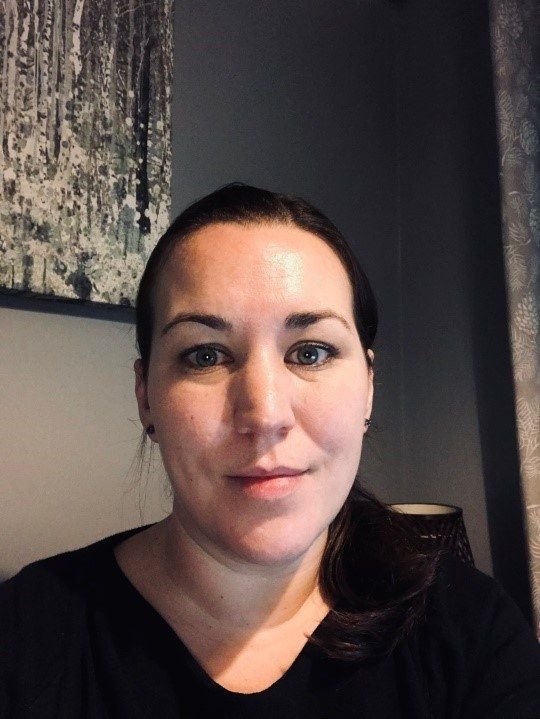 Hello, my name is Rachel, Network Manager for the West Yorkshire and Harrogate Integrated Stroke Delivery Network, ISDN for short!
Hello, my name is Rachel, Network Manager for the West Yorkshire and Harrogate Integrated Stroke Delivery Network, ISDN for short!
It’s almost a year since I joined the ISDN team and those who have already met me know that I love to talk about all things stroke.
The aim of the ISDN is to bring together stroke services across West Yorkshire and Harrogate, to deliver the best possible care along the whole of the pathway, from prevention through to end of life care. Stroke is the largest cause of disability in the UK and the fourth biggest killer. In West Yorkshire and Harrogate, around 3000 people a year have a stroke with two thirds of stroke survivors left with some form of physical, mental or emotional disability – often completely life changing.
The National Stroke Service Model (2021) provides a framework for improvement and outlines how the ISDN should support the design and delivery of stroke pathways, using a networked approach to reduce stroke mortality, disability and the impact on patients, families, carers and health and social care providers.
It’s good to look back at some of our achievements, but we also recognise that there are areas of the service we can improve – projects currently on going are the Thrombolysis and Thrombectomy services, sustaining the Stroke workforce and delivering needs-based integrated stroke specific community rehabilitation, for all patients who need it.
More recently the National Stroke Service Model (2021) and the Long-Term Plan (2019) ambitions have been translated into a set of national key performance indicators. Fortunately, the development of our West Yorkshire and Harrogate Stroke Dashboard which uses data from the Sentinel Stroke National Audit Programme (SSNAP), enables us to benchmark services, supports conversations to enhance performance and builds on our ambition to reach a SSNAP level Score A (the highest score measuring quality) in all key domains across our region.
Over the last year we have worked closely with our neighbouring ISDN’s in South Yorkshire and Bassetlaw and Humber Coast and Vale. This collaborative approach has enabled us to work together on a joint stroke prevention and health inequalities strategy and helped us to understand our collective workforce pressures and work with our partners to support stroke workforce development across the whole of the stroke pathway.
We have also partnered with the Yorkshire and Humber Stroke Research team and continue to look at ways in which stroke research can support the delivery of national guidance and ISDN objectives. Yorkshire and Humber continue to rank in the top 10 for active participation in stroke research, which is incredible considering the impact COVID-19 had on research capacity. Work is ongoing to optimise recruitment to studies in each of our places.
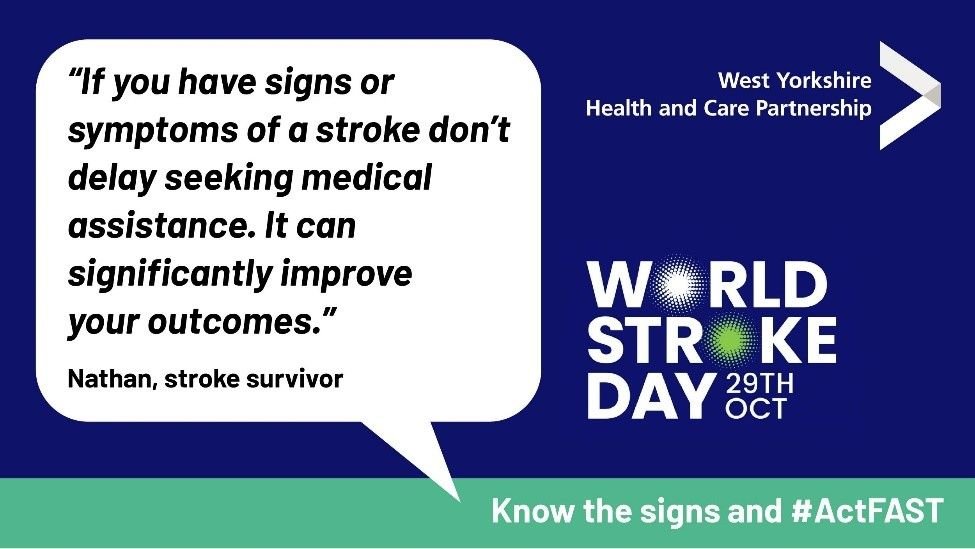 Without a doubt, the best part of my role is working with our patient and carer representative group. Working with patients and carers really helps the ISDN to focus on what needs to be done to improve outcomes and patient experience. Recently the group has come together to help raise awareness of World Stroke Day today (29 October) and the importance of accessing emergency services immediately after symptoms of stroke occur. Their lived experience and real time feedback of what it’s really like to live life as a stroke survivor, is so valuable in shaping the work of the ISDN.
Without a doubt, the best part of my role is working with our patient and carer representative group. Working with patients and carers really helps the ISDN to focus on what needs to be done to improve outcomes and patient experience. Recently the group has come together to help raise awareness of World Stroke Day today (29 October) and the importance of accessing emergency services immediately after symptoms of stroke occur. Their lived experience and real time feedback of what it’s really like to live life as a stroke survivor, is so valuable in shaping the work of the ISDN.
If you would like to learn more about our patient and carer representative group, further details can be found on the Partnership website.
Working jointly with the patient and carer group, we are beginning to understand the large array of voluntary sector community services that are available for stroke survivors in our region, with groups delivering a range of creative activities, exercise sessions and speech cafes. The work they do makes such a difference to stroke survivors and we are looking forward to working with the voluntary sector more closely over the coming months and sharing the good work that they do, through the development of a directory of services.
Over the last year, what has really struck me is how our stakeholders take time from their busy clinical schedules to join us at meetings and contribute to service developments and projects. Their passion for stroke services and their ambition to continuously improve is commendable and I hope that this collective effort will help us to achieve the highest quality of stroke services, for all those who need it.
Stay safe and have a lovely weekend,
Rachel
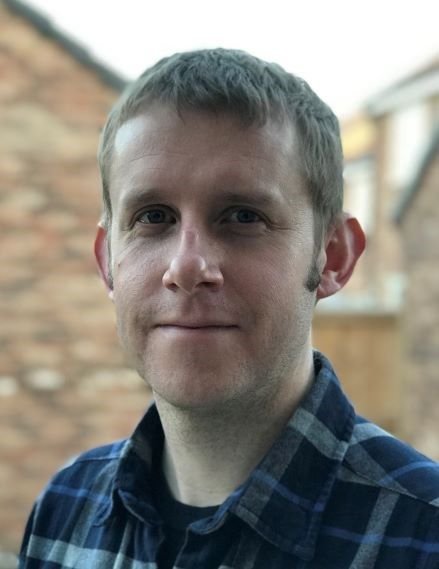 Hello, my name is Nigel.
Hello, my name is Nigel.
I am a Consultant Clinical Psychologist working in staff wellbeing, based at Mid Yorkshire Hospitals NHS Trust. I joined the West Yorkshire Staff Mental Health and Wellbeing Hub team in January, feeling privileged to work with colleagues in developing a new service for staff and volunteers across the whole system, while at the same time feeling both excitement and trepidation in equal measure. Being able to share what I have learned prior to and during the pandemic, was balanced with a fear of being ‘found out’ on a bigger and more exposed stage.
This fear has been just as real for colleagues working more directly with patients over the past 18 months or so, with no clear answers or guidance to inform us what the ‘right support’ should, or could, look like. Sure, there were some hints from work done with people in countries that had been affected by natural disaster and war. Focusing on ‘Psychological First Aid’ in many ways did feel like the right response to the initial stages of the pandemic, but it would not suffice as the only response, particularly as the situation wore on with no end in sight. Responding in this context felt at times overwhelming - again, a mirror of what many people will have experienced across all health and social care sectors during this time. Despite the professional challenges I wrestled, I worked closely with colleagues who were equally passionate about the wellbeing of people working in the organisation, and together we achieved a great deal – putting in place options of support for people to use depending on their needs.
In January the Hub team was immediately focused on mobilising resources and interventions to help individual staff and volunteers who were, and are still, in distress. During this initial phase I started to better understand the system that we were to provide a service for, and the size and complexity of that system felt immense. Information gathered from organisations during the Autumn of 2020 told us that access to specialist therapy was a key gap and it was clear that developing a service that could meet the needs of people from different backgrounds, working in organisations of different sizes in different sectors, with different organisational cultures is a challenge would require a flexible and creative approach. For me, being able to work in this way, and to learn about the services delivered by voluntary, community, and social enterprise organisations has been an enriching experience, and I hope to continue my learning and development through making these connections.
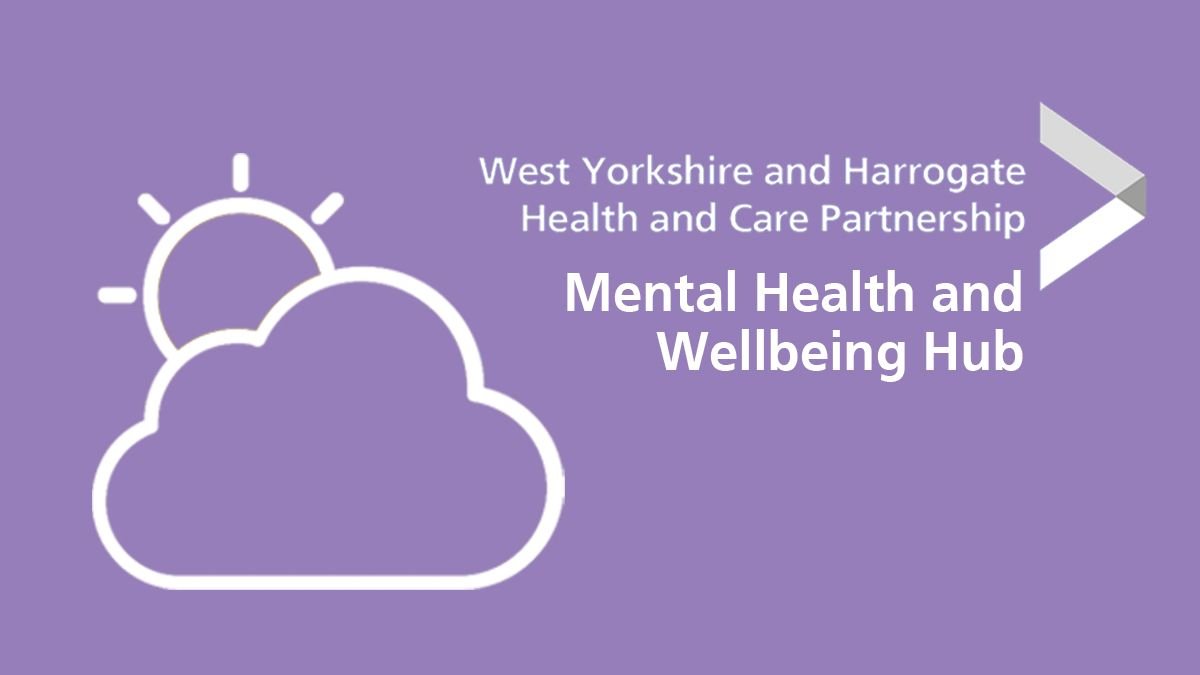 Within the Hub team we have a shared vision that the Hub needs to be much more than a support and therapy service. For the immediate needs of people that have been impacted by the pandemic, support, and access to therapy is the correct focus and that won’t change. Moving forward it would be helpful to see a shift from the tactical response appropriate for the initial phases of the pandemic, to a more strategic and long-term approach to the provision of access to specialist psychological therapies for staff and volunteers.
Within the Hub team we have a shared vision that the Hub needs to be much more than a support and therapy service. For the immediate needs of people that have been impacted by the pandemic, support, and access to therapy is the correct focus and that won’t change. Moving forward it would be helpful to see a shift from the tactical response appropriate for the initial phases of the pandemic, to a more strategic and long-term approach to the provision of access to specialist psychological therapies for staff and volunteers.
It’s also important that interventions are developed that are proactive and preventative, as well as helping people to recover when they are harmed.
It is rewarding to see that the number of people accessing the Hub and trusting us to help them to recover is growing month on month, but we are noticing that people are seeking help very late, when coming through to us. Help givers and carers are often not great at prioritising themselves and seeking help for their own needs. We need to look out for each other, be vigilant of those who do not seem themselves, check-in, have conversations, listen, and support and encourage people to access help early. We also need to be honest with ourselves - we need to let people in, let people know, give ourselves the chance to be heard and supported, and try to have the courage and strength to ask for help from services that are there for us when we need it.
Have a safe weekend
Nigel
What else has been happening this week?
The citizens’ panel
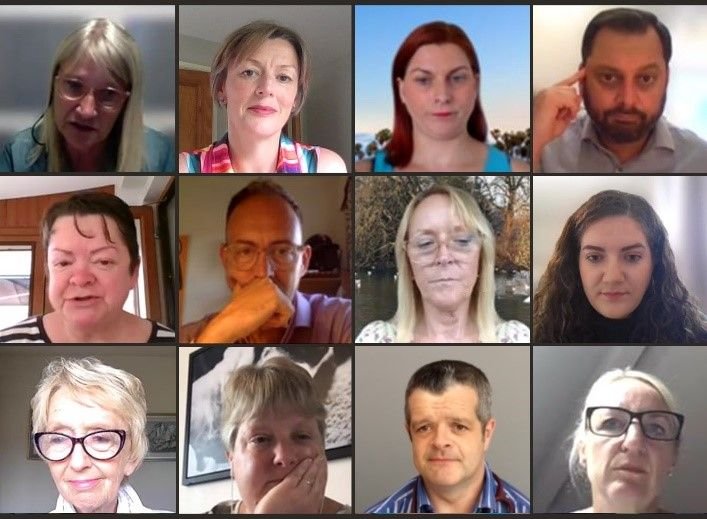 One of the most important themes for our Planned Care Citizens’ Panel has been around helping patients to stay well during their wait for treatment. Panel members told us that they would like easy access to information and guidance on how to manage their own health condition whilst waiting. They also wanted to know more about the various support services available, such as social prescribing options and activities provided by the voluntary, community and social enterprise sector. Signposting patients to such services was highlighted as a priority by the panel. This important feedback was shared with the NHS England Regional Team for North East and Yorkshire and, as a result, a new national platform is being developed called ‘My Planned Care’, to support patients whilst they are waiting.
One of the most important themes for our Planned Care Citizens’ Panel has been around helping patients to stay well during their wait for treatment. Panel members told us that they would like easy access to information and guidance on how to manage their own health condition whilst waiting. They also wanted to know more about the various support services available, such as social prescribing options and activities provided by the voluntary, community and social enterprise sector. Signposting patients to such services was highlighted as a priority by the panel. This important feedback was shared with the NHS England Regional Team for North East and Yorkshire and, as a result, a new national platform is being developed called ‘My Planned Care’, to support patients whilst they are waiting.
On 20 October, members of the citizens’ panel met with the developers of ‘My Planned Care’ to share their thoughts on the look and functionality of this new platform. One of the panel members said:
“Our comments have been very well received and our time, views and voices have not gone unheard. In fact, it appears we have been integral in the development of this new platform on a national level and that is one thing that I am certainly proud of and think we all should be.”
‘My Planned Care’ is a digital platform that will provide patients on the NHS waiting list with information and guidance specific to their condition or specialty by the hospital that they are under the care of. The platform will hold contact details for where patients can seek additional advice if their condition should deteriorate. This is something the citizens’ panel were extremely keen to have included. It is hoped that the national rollout of ‘My Planned Care’ will start in November 2021.
NHS Chief Executive visits place-based mental health support teams
 Bradford District and Craven colleagues were delighted to welcome Amanda Pritchard - NHS England’s Chief Executive to the area at the beginning of October to find out more about their innovative work in schools to improve the emotional wellbeing support for children and young people through the mental health support teams (MHST). Her recent visit started at Carlton Academy Keighley (previously known as UAK) where she met school staff, pupils, and NHS colleagues from the MHST.
Bradford District and Craven colleagues were delighted to welcome Amanda Pritchard - NHS England’s Chief Executive to the area at the beginning of October to find out more about their innovative work in schools to improve the emotional wellbeing support for children and young people through the mental health support teams (MHST). Her recent visit started at Carlton Academy Keighley (previously known as UAK) where she met school staff, pupils, and NHS colleagues from the MHST.
Thanks to national funding between NHS England and the Department of Education the mental health support teams are providing evidenced based interventions for low mood and anxieties and helping bring a ‘whole school’ approach across the country, our local programmes is one of the widest reaching ones to date.
The next stop was the Bread and Roses youth café, where Amanda met with colleagues leading the youth in mind and healthy minds programme as well as two apprentices from our Act as One children and young people wellbeing programme. At the café, Amanda also heard about the Bradford approach to Reducing Inequalities in Communities (RIC) and the RIC story.
The final visit was to the Jacobs Well Covid-19 vaccination centre, where Amanda heard about the efforts to reach out to our diverse communities as well as our work to support people with a learning disability to access the vaccine.
Following a visit to the Carlton Academy secondary school in Keighley, Bradford, NHS Chief Executive Amanda Pritchard said: “This service and the staff delivering it have clearly had a strong and positive impact on the children and young people I’ve spoken to, and it’s encouraging to hear not just that the NHS school mental health team has benefitted pupils’ mental health but given a boost to their education too.
“More than 100 NHS school mental health teams are now being introduced across the country, which means even more young people will be able to get the support they need, in the classroom, while parents can benefit from advice through these teams too.”
Health Equity Fellowship
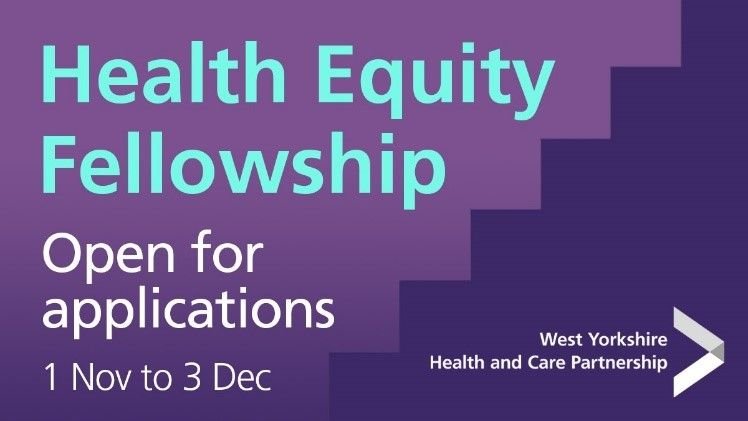 The West Yorkshire Health Equity Fellowship Programme is part of the West Yorkshire Health and Care Partnership Health Inequalities Academy, working towards the ambition to equip all staff with an understanding of the individual and collective action we can take to create a more equitable health and care system.
The West Yorkshire Health Equity Fellowship Programme is part of the West Yorkshire Health and Care Partnership Health Inequalities Academy, working towards the ambition to equip all staff with an understanding of the individual and collective action we can take to create a more equitable health and care system.
We have set strategic ambitions to reduce health inequalities. The need for these ambitions has been reinforced by health inequalities made worse by the COVID-19 pandemic. The fellowship opens for applications on 1 November to 3 December. Fellows will be expected to dedicate one day a week of their time to attend health equity training and work on a health equity project. The projects could be delivered in the applicant’s usual place of work or it could contribute to wider joined up or system approaches taking place across the area. We hope to attract a diverse range of applicants from different sectors and places. Additionally, we want to ensure that we have a variety of projects addressing equity and inequalities across the region to achieve the best outcomes for our population and are seeking ideas from partners.
If you have a project that you would like to put forward please contact emmerline.
Hayley is our champ
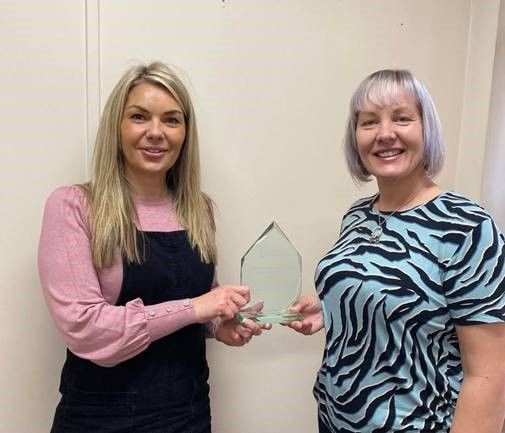 Digital Project Manager, Hayley Lockwood, who was crowned NHS Champion in Support of Procurement at the recent NHS in the North Excellence in Supply Awards has received her award.
Digital Project Manager, Hayley Lockwood, who was crowned NHS Champion in Support of Procurement at the recent NHS in the North Excellence in Supply Awards has received her award.
The ceremony was held virtually on 23 September so we made separate arrangements for Dawn Greaves, our Digital Programme Manager, to safely hand over the award in person.
See the full story on our news and case studies page.
52,000 families supported, as technology to help diagnose ADHD is rolled out by NHS
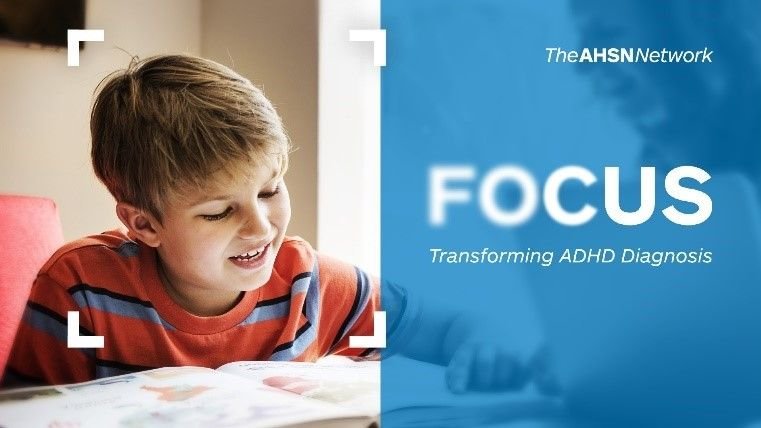 The Academic Health Science Network (AHSN) is helping to transform Attention Deficit Hyperactivity Disorder (ADHD) services across England with the rollout of technology that can provide an objective assessment and help families to receive a diagnosis more quickly. New figures released during ADHD Awareness Month (October) show that, since the start of the first ‘demonstrator’ site in the East Midlands in 2017, 52,000 children across England have had an objective assessment for ADHD using the QbTest technology. The QbTest has a strong evidence base that shows direct benefits for the patient, their family as well as the wider healthcare system. Since April 2020, the Yorkshire & Humber AHSN have supported the completion of 2,029 tests in the region within the first 18-months of the Focus ADHD programme saving the same number of clinical appointments and reducing the waiting time for a diagnosis by an average five months for each child referred.
The Academic Health Science Network (AHSN) is helping to transform Attention Deficit Hyperactivity Disorder (ADHD) services across England with the rollout of technology that can provide an objective assessment and help families to receive a diagnosis more quickly. New figures released during ADHD Awareness Month (October) show that, since the start of the first ‘demonstrator’ site in the East Midlands in 2017, 52,000 children across England have had an objective assessment for ADHD using the QbTest technology. The QbTest has a strong evidence base that shows direct benefits for the patient, their family as well as the wider healthcare system. Since April 2020, the Yorkshire & Humber AHSN have supported the completion of 2,029 tests in the region within the first 18-months of the Focus ADHD programme saving the same number of clinical appointments and reducing the waiting time for a diagnosis by an average five months for each child referred.
Following the real-world demonstrator project commissioned by East Midlands AHSN in 2017, the team is leading the national Focus ADHD programme across all 15 AHSNs to roll the test out across the country. Despite Covid restrictions, nearly 10,000 children benefited from undertaking a QbTest in 2020/21. A further 9,500 tests have been completed by the end of September 2021 at 51 trusts across 100 sites. Watch this video to see how the test has benefited a family. To find out more visit the Yorkshire & Humber AHSN news page
Reflecting on AHP Day celebrations in West Yorkshire
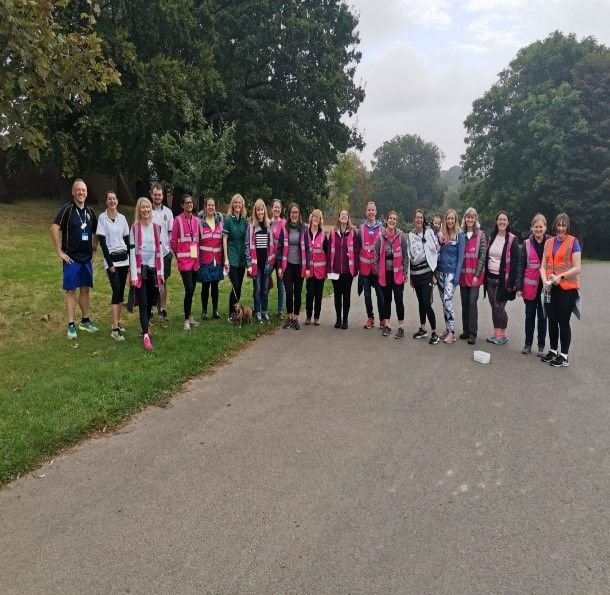 Allied Health Profession (AHP) Day takes place on the 14 October every year. AHPs are the third largest healthcare workforce, with significant opportunities to support delivery of the NHS Long Term Plan. AHP Day allows us to:
Allied Health Profession (AHP) Day takes place on the 14 October every year. AHPs are the third largest healthcare workforce, with significant opportunities to support delivery of the NHS Long Term Plan. AHP Day allows us to:
- Improve awareness of the role of the fourteen allied health professions
- Showcase the achievements of local services and their impact on patient care and population health
- Joined up working with other services and organisations.
So, what did we do to celebrate in West Yorkshire? AHPs from across Leeds and Wakefield came together to ‘takeover’ the Temple Newsam Park Run on Saturday 9 October. The event presented the opportunity to promote the Allied Health Professional roles to the public, along with encouraging a run/walk in some lovely scenery and some time to connect with each other. Massive thanks go to Beth Gripton, Dietitian at Leeds York Partnership NHS Foundation Trust Connect Service and Run Director for the event, who organised the takeover. Thanks also go out to all the other volunteers on the day and to anyone who took part. With over 140 attendees, it was a great success.
Calderdale and Huddersfield NHS Foundation Trust has announced the appointment of Brendan Brown as its new Chief Executive
Commenting on his appointment, Brendan said:
“I am thrilled and deeply honoured to be returning to Calderdale and Huddersfield NHS Foundation Trust as its Chief Executive. I know the organisation well and am looking forward to working with colleagues old and new. As we move forward together, we’ll continue to face huge pressures; with the continued impact of the pandemic still being felt, a surge in acute demand and a backlog in elective procedures. But there is no doubt in my mind that we will rise to the challenge. I would also like to take this opportunity to thank my colleagues at my current organisation, Airedale NHS Foundation Trust. I am enormously proud of Airedale and all that we have collectively achieved. It is a trust with a huge ambition and a very particular place at the heart of its community. I shall be very sorry to leave it when the time comes but know that I leave it in the capable hands of a strong leadership team and a committed, compassionate workforce who will take it from strength to strength.”
You can read more on the Calderdale and Huddersfield NHS Foundation Trust website.

